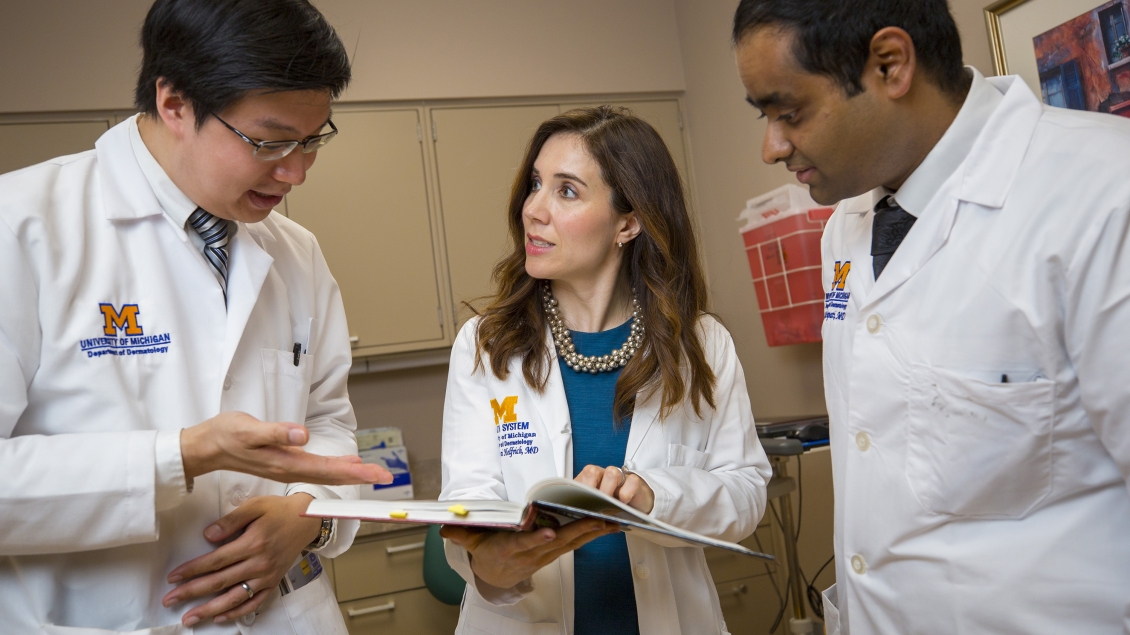
Diverse, Complex Clinical Experiences
Our residency program combines virtues of compassionate care and sound clinical judgment with the resources of a major research institution.
- Traditional, 3-year dermatology residency training program
- NIH (T32) training program supports those seeking postdoctoral research training
- Diverse clinical settings, philosophies and patient populations
- Faculty who are experts in the care of skin disorders and leaders in dermatologic education and research
- We promote opportunities for intellectual stimulation and academic growth
- A diverse, vibrant and welcoming community
- Incomparable alumni network
Our program aims to:
- Foster an environment of diversity and inclusion
- Prepare residents for a future practice of dermatology based on the virtues of compassionate care and sound clinical judgment
- Expose residents to the most complex facets of medical and surgical dermatology, ensuring graduates are well-prepared for any aspect of future practice or training
- Support residents in their scholarly interests and research activities by leveraging our rich research infrastructure to allow for scientific exploration and advancement
- Teach residents to critically evaluate scientific evidence and cultivate a discipline of life-long self-directed learning
- Furnish residents with tools to teach others effectively and become excellent educators
Residents have the opportunity to teach U-M Medical School students and visiting students from other medical schools through bedside instruction and formal didactic lectures.
To ensure that participants acquire adequate knowledge and develop their technical skills, participants' performance is monitored carefully throughout residency training. Residents are evaluated formally by supervising faculty members. Residents also evaluate the faculty regularly to ensure that educational needs are being met. The evaluation process assesses the ACGME core competencies.
Residents meet periodically with various faculty members, administrators and the program director to discuss professional goals. Michigan Medicine recruits many staff physicians from our own training programs.
Administrative, regulatory, ethical and legal issues are major aspects of medicine today and are covered continually during clinics and in conferences. As a resident, you will learn how to work on practice-based improvement projects through participation in departmental administrative activities and work groups. Practice management discussions also teach administrative aspects of the department. In these sessions, you will explore various topics including the challenges of managing a university department as well as issues related to private practice management.
Our residents' success in their research endeavors is evident in their publications and presentations. Dermatology residents are encouraged to collaborate with clinical faculty to develop clinical case reports and case reviews, retrospective studies and clinical research projects.
The mission of the University of Michigan Medical School Department of Dermatology Residency Wellness Committee is to promote the development of residents through initiatives and events that foster personal, professional, and emotional well-being.
Welcome! We are devoted to training diverse leaders in dermatology to advance the field through excellent patient care, innovative research, and dedication to life-long learning for themselves and others. Our program offers a stimulating, multifaceted experience within a supportive environment where teaching and learning are a foremost priority. If you are committed to excellence in all that you do, we invite you to apply for training at the University of Michigan.


Meet the current residents training with the Department of Dermatology.
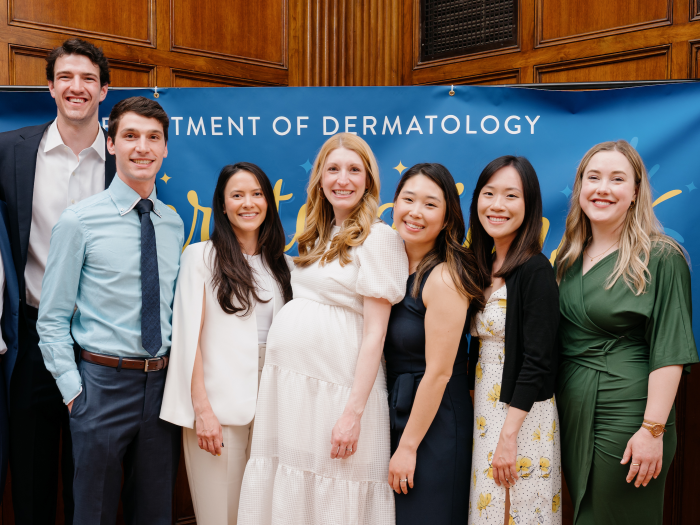
Learn where our recent Department of Dermatology residency graduates have gone next in their careers.
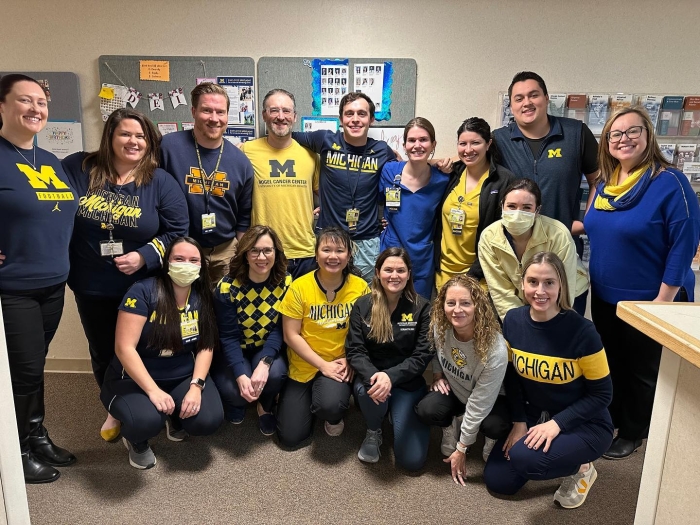
Follow Michigan Dermatology Residency on Instagram for the latest stories, photos and more.
For pre-clinical U-M Medical School students with backgrounds traditionally under-represented in medicine, this program offers formal mentorship, teaching, clinical exposure, networking and research opportunities.
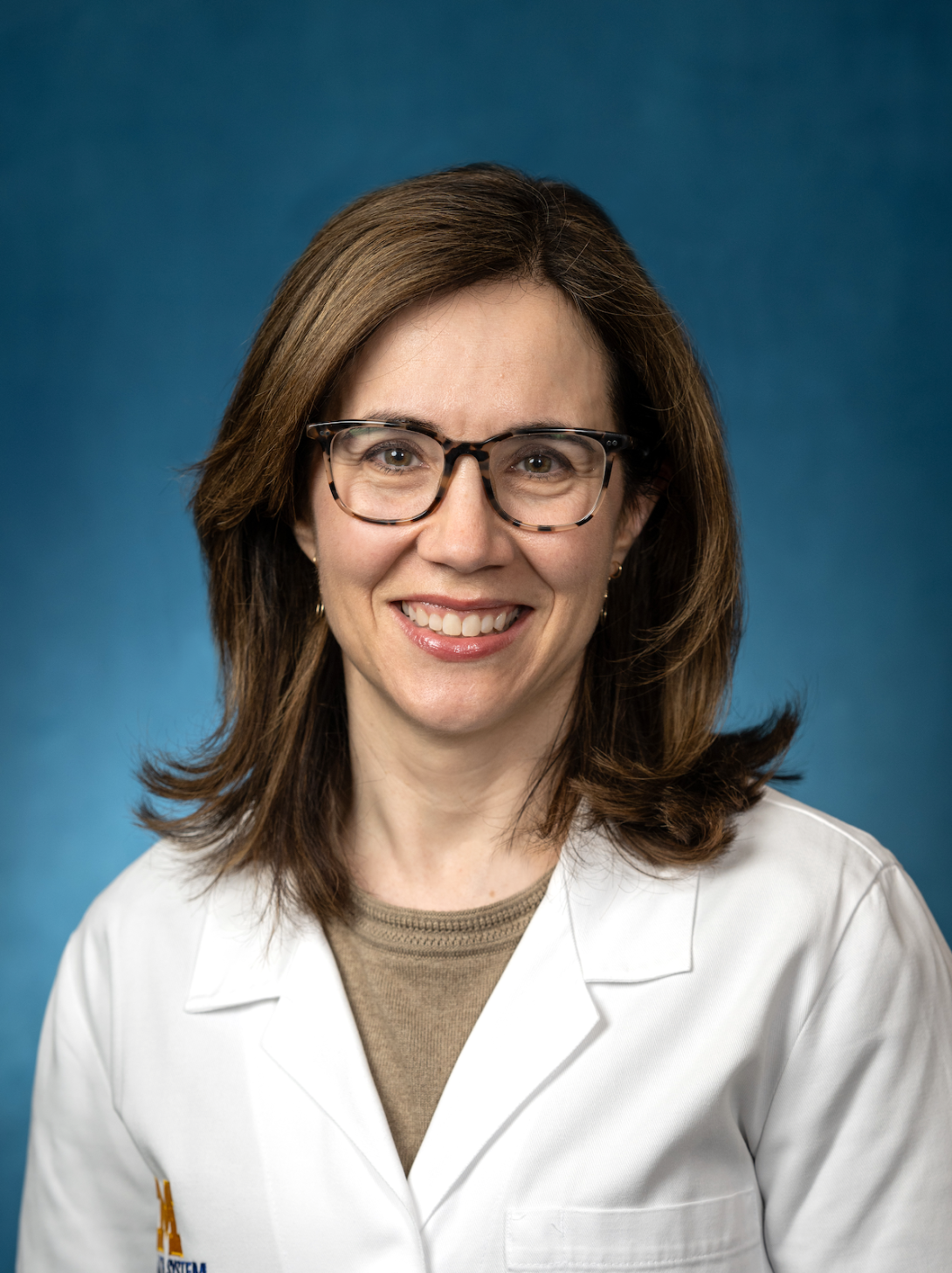
Program Director, Dermatology
Section Head, Dermatology
Medical Director

Associate Chair, Department of Dermatology
Associate Professor of Dermatology
Scientific Trunk Director
Assistant Program Director of Residency Curriculum
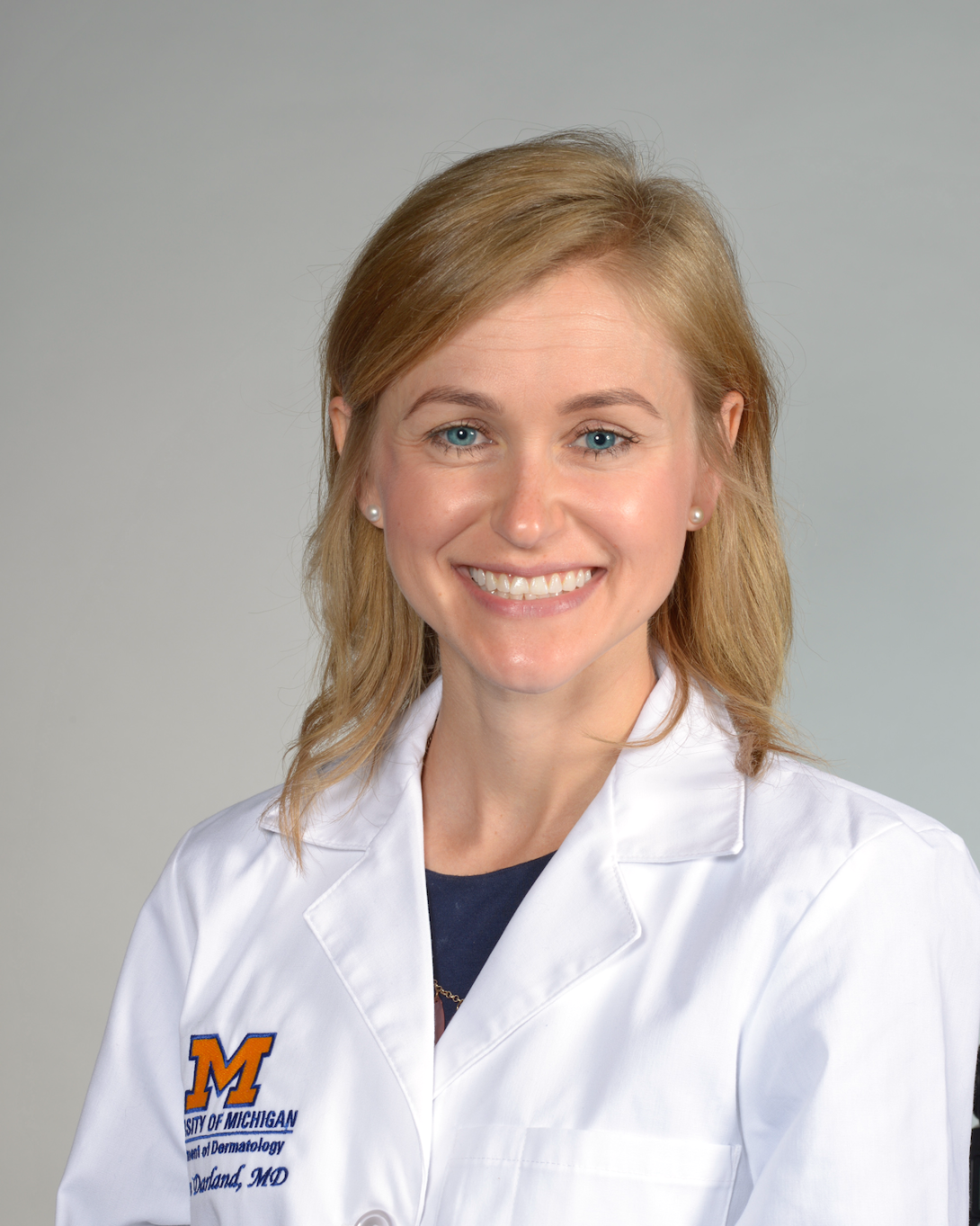

We find a new reason to love Ann Arbor nearly every day — outdoor activities, cultural experiences, a growing food scene, and a welcoming atmosphere are just a few. Explore all that the area has to offer.